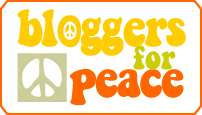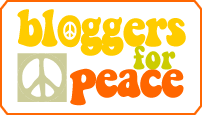“Settle down, class. Today, we’re going to go over the chapter in history on the 21st century. Did any of you read it before class today?”
“Yes, ma’am. I didn’t understand it at all.”
“We’ll go over it together and answer questions afterward, alright? OK, class, we’re going to start with the dawn of the internet age in the late 20th century. History builds on itself, so you can’t just study one part without understanding everything that led up to it.
Humans have a brutal and bloody history. For centuries, we fought over land, religion, skin color, gender and any other thing that divided us. There were two great world wars that killed countless people. There were conflicts all over the world all the time. People were constantly hurting each other in the name of what they believed and everyone thought their side was right.
The internet made it possible for all people to instantly connect with everyone else, no matter where they were. You would think that this connection would bring us all together, but in the end, it just made it easier for most people to see and point out our differences. People hid behind anonymous avatars and threw insults at each other.
There were no great world wars anymore; the wars were smaller and more targeted. People built improvised explosive devices and blew up innocent civilians. “Friendly fire,” a term meaning that a soldier was injured by allies, became common. Nobody knew who the enemy was. Humans declared war on nouns like “terror.”
Meanwhile, the planet was decaying around us. People were constantly distracted and they stopped caring about the world as a whole. They only saw themselves and those around them. They only saw the differences. We were on the verge of self-annihilation. Self-annihilation means to destroy oneself.
It would take an external threat to bring all humans together. In 2036, astronomers discovered a previously unknown comet, about the size of Texas, heading straight for earth. We only had about ten years before it reached us. There was a lot of arguing over what to do. Some thought that we should try to change its course. Some thought we should blast it from the sky. Still others said we should do nothing, that it was our destiny.
For years, there were many conflicts over the asteroid. Eventually, humans from all countries on earth realized that, if we didn’t do anything about the asteroid, the whole planet would suffer. The United Nations assembled a group of scientists to come up with a solution. It worked. The earth was saved at the last minute, but we just as easily could have been destroyed.
Potential destruction is what brought us all together. The united governments of earth became a driving power for peace. They worked together to settle all of our differences. All those who were still at war were forced to stop. For the last 100 years, there hasn’t been a single war on earth.
Eventually, even borders became meaningless. We are no longer American, British or Afghan; we are all inhabitants of earth. The planet is the largest democracy to ever have existed. We all have an equal say in what happens to our planet. Everyone gets a vote, and while there are still disagreements, they never end in war anymore. Any questions?”








